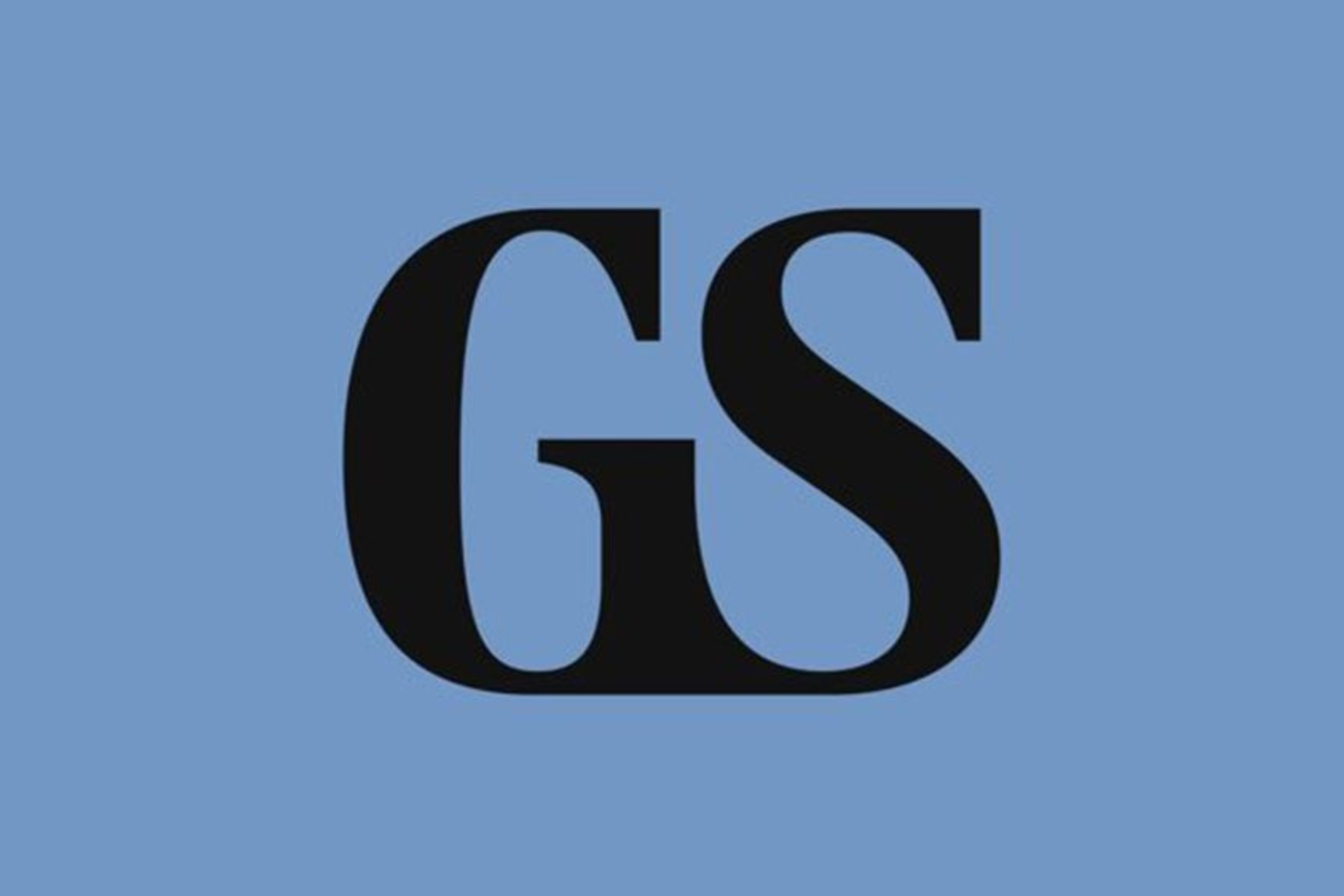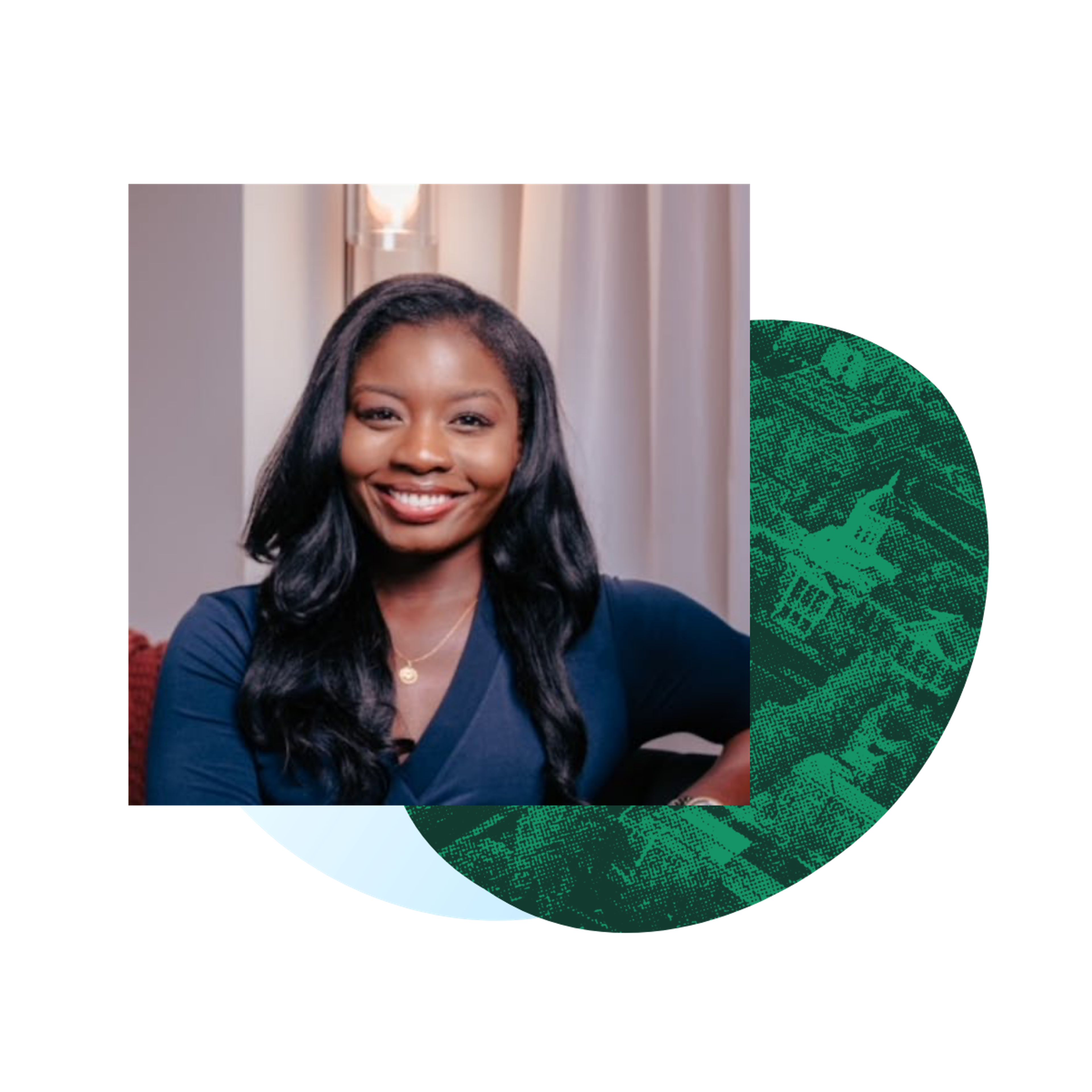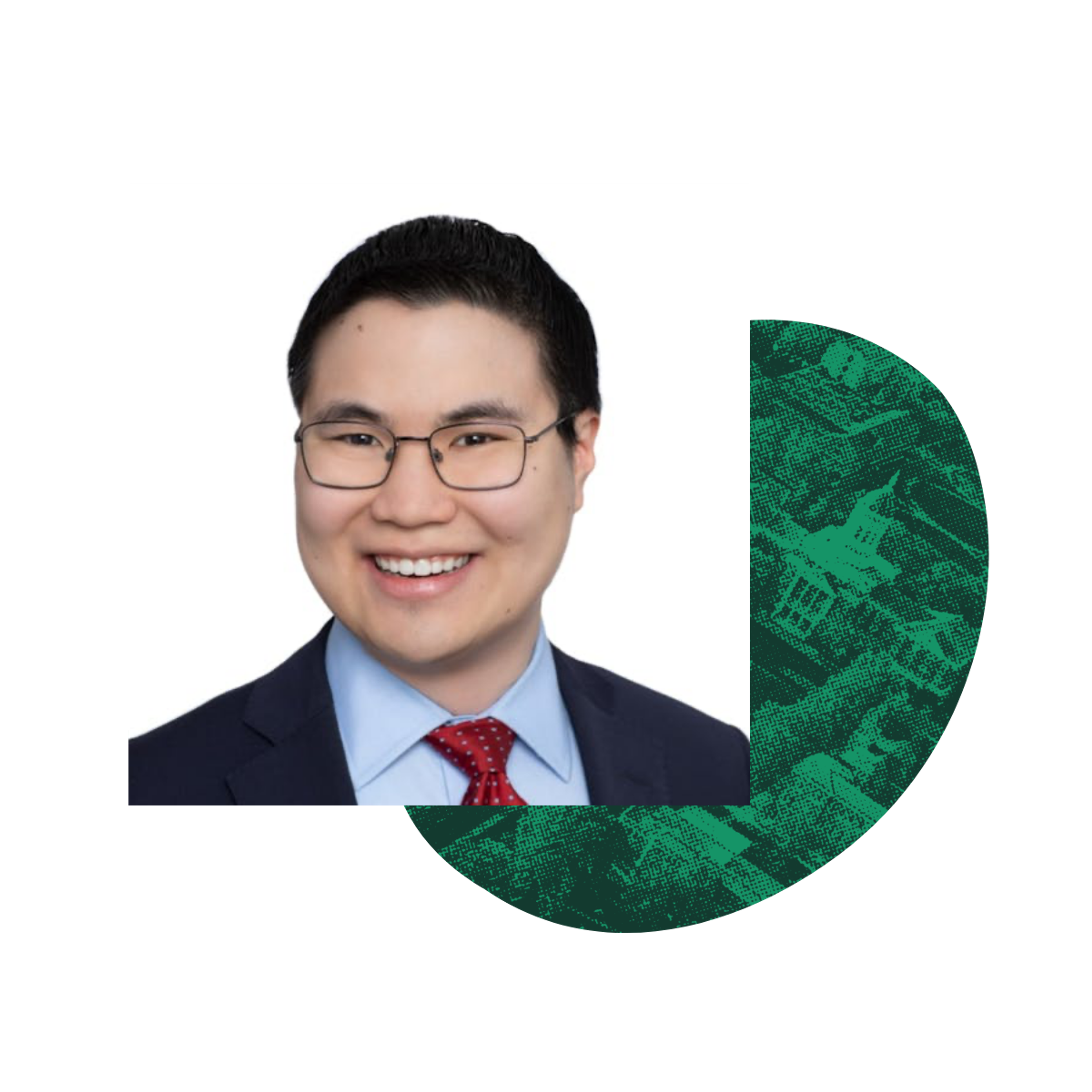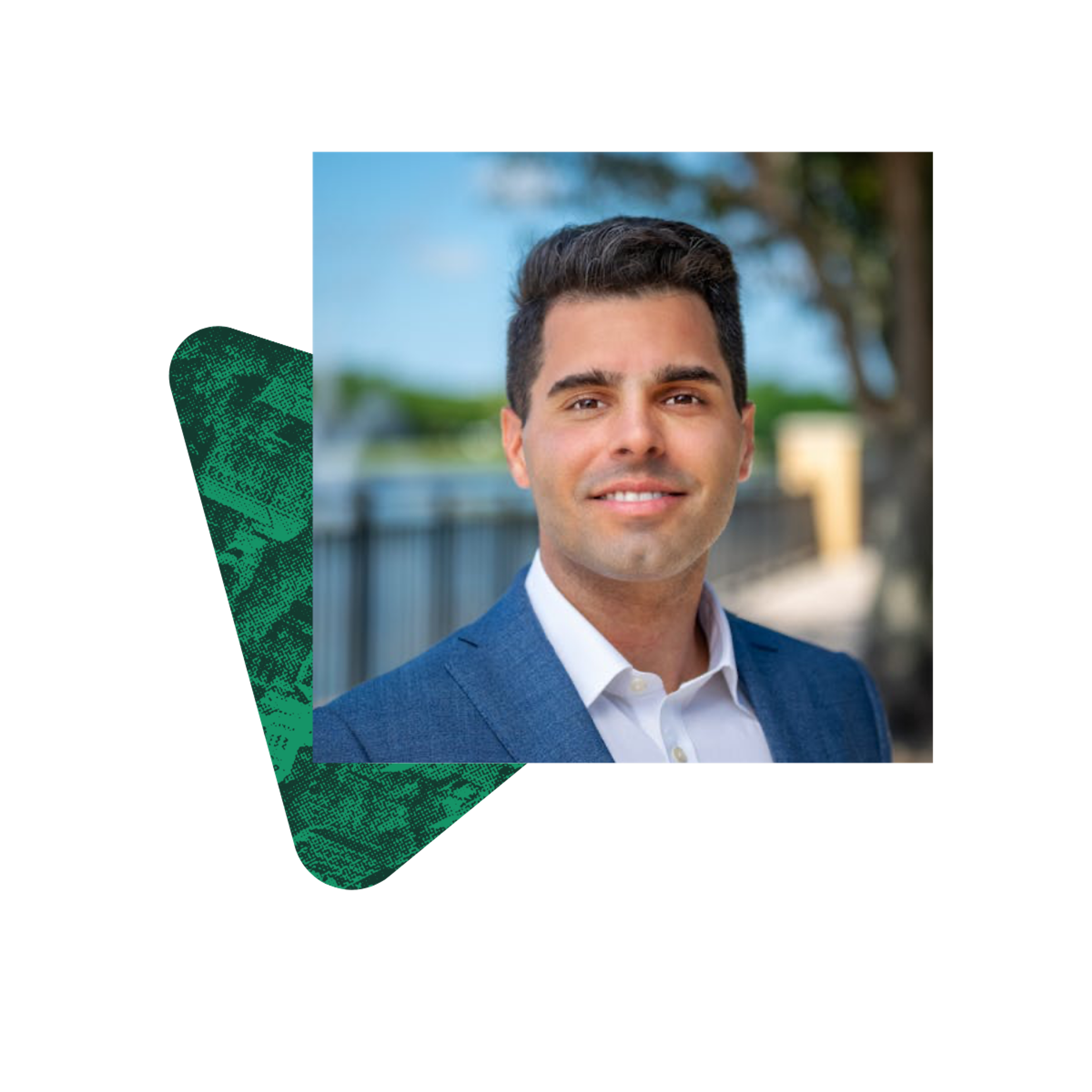20 Most Common Goldman Sachs Interview Questions (With Example Answers from Experts)
Master Goldman Sachs interviews by prepping with our list of common questions. Prepare for your upcoming interview and see sample answers from experts.
Posted November 4, 2025

Join a free event
Learn from top coaches and industry experts in live, interactive sessions you can join for free.
Table of Contents
Behavioral Questions
Tell me about yourself?
I grew up in Chicago in a family that ran a small logistics business, which taught me how seemingly minute financial decisions can ripple through an entire company. That led me to study economics at Northwestern and intern in private equity before moving to work as a summer analyst in J.P. Morgan’s Industrials group, where I worked on mergers and acquisitions (M&A). I learned how to build models under tight deadlines and communicate clearly with senior clients. I’m excited about Goldman because of the breadth of Industrials deal flow here and the reputation for developing top bankers, and I want to contribute from day one.
Why do you want to work in banking/software engineering/trading?
I’m drawn to investment banking because of the chance to help companies navigate their most important strategic decisions. During my summer in J.P. Morgan’s Industrials group, I helped leverage a finance deal, and I saw how bankers use rigorous analysis during moments that truly shape a company’s future. I enjoyed the pace and the fact that my work directly supported senior leaders making billion-dollar decisions.
I’m also drawn to banking because of the need to communicate complex topics clearly with clients and teammates. For me, that combination of analytical rigor and client impact is incredibly energizing. I see Goldman as the ideal place to grow because of the caliber of its Industrials platform and the culture of developing junior talent. I want to be in an environment where I’m challenged every day and where my work contributes meaningfully from the start.
Why Goldman Sachs?
For me, I'm drawn to both the people and the platform. During the summer, I reached out to several Goldman alumni from my school to learn more about what it's like to work at the company. What stood out in every conversation was how invested they were in developing juniors, not just in technical skills, but in judgment and client presence. That mentorship culture is something I want to be part of and learn from.
The second reason is the platform. Goldman's Industrials franchise is consistently at the center of the most complex and high-profile transactions. I'm excited by the idea of working on deals that actually reshape industry landscapes. That environment, where the bar is set incredibly high, is the exact place I want to build my career.
Walk me through your resume.
Sure. I grew up in Dallas, where my parents owned and operated a small construction supply business. Watching how financing decisions impacted everything from hiring to expansion sparked my initial interest in finance.
That led me to study Economics and Computer Science at Yale, where I graduated magna cum laude. While there, I led our student-run investment fund, managing a $1.5 million endowment portfolio and outperforming the benchmark for two consecutive years. I was also vice president of the 180 Degrees Consulting Club, which taught me how to communicate complex ideas clearly.
During my sophomore year, I interned at a middle-market private equity firm, where I built LBO models and evaluated add-on acquisitions in the healthcare space. The following summer, I joined UBS’ Industrials group, where I worked on a cross-border M&A transaction and a debt financing. That’s where I realized I thrive in fast-paced environments.
Most recently, I spent a semester interning at BlackRock, where I focused on credit research. That’s why I’m so excited about Goldman Sachs: I know I’ll be challenged with complex Industrials transactions and contribute from day one.
Describe a time you had to deal with a difficult client?
During my summer at J.P. Morgan, I worked on a sell-side deal where the client’s CFO was often frustrated with our drafts. After one tense call, I realized it wasn’t just about the models we were building, it was about trust. I volunteered to double-check every model and then walked him through updates before sending materials. It took extra effort, but it showed him we were on top of details. Over time, he became more collaborative, and we closed on schedule. That taught me that with tough clients, communication is just as important as technical accuracy.
Example Analysis
This is a strong, polished answer that shows maturity, empathy, and a clear understanding of client dynamics. You demonstrate ownership, initiative, and composure under pressure. To take it from excellent to exceptional, I’d add a touch of measurable impact like noting how your extra effort improved client confidence or accelerated deal execution. Framing “double-checking” as proactive quality assurance would also make it sound more strategic. Overall, this answer shows you think beyond the technicals to the relationship side of banking.
Tell us about a financial news story you found interesting and why?
One story I followed closely was United Airlines’ recent $5 billion bond deal to refinance debt tied to its fleet. What interested me most was the timing of the deal; they issued right as rates were stabilizing after months of volatility. It showed me how corporate treasurers are balancing near-term liquidity with long-term strategy. I find it fascinating because it’s not just about raising capital; it’s about understanding the way financing decisions impact operations and investment. That kind of intersection between markets and strategy is exactly what draws me to banking.
Tell me about a time you worked on a team?
During my internship in J.P. Morgan’s Industrials group, I worked on an M&A deal where our team had to build a buyer list. The associates divided up industries, and I was responsible for the aerospace segment. Instead of just sending back a spreadsheet, I coordinated with another analyst to cross-check the comps, and we flagged two potential buyers that the team hadn’t considered.
What stood out was how everyone pulled together; we were constantly syncing to ensure consistency in materials. The deal went smoothly, and those two buyers I flagged actually became a key part of management discussions. The experience taught me that in banking, teamwork is about constant communication so that the whole team delivers a unified product.
Describe a time you had to turn down a project because of other deadlines.
In my final year at Northwestern, I was leading our student-run investment fund while also working on a senior thesis in econometrics. Around midterm season, a professor asked me to join a research project on short-selling, which was exciting but came right as we were preparing our quarterly report.
I sat down with the professor, explained my existing commitments, and suggested I could contribute in a limited capacity the following semester once the fund’s reporting cycle ended. He appreciated the honesty, and I was later able to join the project when I had bandwidth.
That experience taught me the importance of being upfront about capacity. I think it’s better to set clear expectations and deliver high-quality work on fewer priorities than to stretch too thin and underperform on all of them.
What does Goldman Sachs do?
At its core, Goldman Sachs is a global financial services firm that helps clients raise capital, execute strategic transactions, and make informed investments. On the investment banking side, that means advising companies on mergers and acquisitions, as well as helping them access markets. Goldman also has a key division in markets and trading.
What sets Goldman apart is the combination of scale and trust, which is why it’s often called upon when companies or institutions face complex challenges. For me, that’s exciting because it means working on transactions that don’t just make headlines, but can reshape industries.
Tell us about your proudest achievement?
One of my proudest achievements was co-founding a financial literacy program at Northwestern for local high school students. Initially, it was just three of us meeting with a dozen students on Saturdays, but I worked hard to increase funding through alumni donations and recruit new volunteers. Within a year, we grew it to over 200 students and were recognized by the city’s Department of Education.
What made me proud wasn’t just the scale, but seeing students apply what we taught to their own lives. One even opened his first savings account and emailed me about it. That experience taught me how to build something from the ground up and stay accountable when others are relying on you.
Technical questions
You’re given two companies, Crocs and Allbirds. Which would you invest in, and why? Walk through your investment thesis, valuation, and key risks.
If I had to pick between Crocs and Allbirds, I would invest in Crocs. My thesis is that Crocs has a stronger brand turnaround story and more resilient cash flows. Over the past few years, they've repositioned their product from a niche clog to a mainstream lifestyle brand through strong digital marketing. That has led to double-digit revenue growth and margins exceeding 25%, which is rare in the footwear industry.
From a valuation standpoint, Crocs trades at a mid-teens P/E multiple, which is reasonable given its growth profile. Allbirds, on the other hand, has an appealing ESG angle, but it remains unprofitable, with negative margins and a heavy reliance on a single product line.
The biggest risk for Crocs would be fashion cyclicality; if the brand falls out of public favor, growth could reverse quickly. For Allbirds, the risk lies in execution, as their path to profitability remains unproven.
That's why I'd invest in Crocs: it's not risk-free, but you're buying a business with scale and consistent profitability, which I think outweighs the early-stage uncertainty of Allbirds.
Example Analysis
This is a very strong, investment-banker-caliber answer as it clearly articulates a thesis, valuation view, and risk framework. You show commercial judgment by favoring profitability and brand durability over hype, which is exactly how senior bankers and investors think. To make it truly top 1%, I’d push you to integrate one or two forward-looking insights - for instance, how Crocs could leverage its recent HEYDUDE acquisition or expand internationally to sustain growth. Overall, this is polished and pragmatic which is the kind of response that signals both market understanding and banker-level strategic thinking.
Walk me through a discounted cash flow (DCF). Which assumptions move valuation the most in this model?
In a DCF, you start by projecting a company’s free cash flows over a forecast period, usually around ten years. To get there, you project revenue growth and operating margins while simultaneously adjusting for changes in working capital.
Then, you discount those projected free cash flows using the company’s weighted average cost of capital. After that, you calculate the terminal value, using either an exit multiple or a perpetuity growth method, and discount that back as well. Adding the two together and subtracting net debt gives you the equity value per share.
In terms of sensitivity, discount rate, and the terminal value are important assumptions to consider. Within the projection period, revenue growth and operating margins are impactful because they directly contribute to free cash flows.
While you can flex a lot of assumptions, valuation tends to be the most sensitive.
Explain how an interest rate swap works and what risks it introduces.
An interest rate swap is an agreement between two parties in which they exchange cash flows based on different interest rate structures. The most common version is one party paying a fixed rate and receiving a floating rate. Companies often use swaps to hedge: for example, if a borrower has floating-rate debt but wants more certainty, they can swap into fixed payments.
The main risks come from three main areas. First, there is market risk, which refers to the idea that if interest rates move in an unexpected direction, the swap’s value will change. Second, counterparty risk exists because it involves an over-the-counter contract; there’s always the chance that the other side will not fulfill its obligations. And third, liquidity, because if you want to exit early, the market value could be negative and costly to close out.
In practice, swaps are powerful hedging tools, but they shift exposure to risk rather than eliminating it.
If you were valuing a company, which trading comparables would you use and why? Which multiples matter most, and how would you defend your choices?
I’d start with EV/EBITDA because it’s the cleanest way to compare operating performance across companies with different capital structures. I’d also consider P/E for more mature firms, where net income is a key metric, and EV/Revenue if the company is growing rapidly but not yet profitable. For example, if I were valuing a footwear brand like Crocs, I’d use companies with similar growth and margin profiles to keep the comps set consistent.
In terms of what moves valuation most, EV/EBITDA tends to carry the most because it’s widely used, less volatile than earnings-based multiples, and more reflective of core operating cash flow. However, the key is always to defend why the multiples are appropriate. If margins vary widely, then EV/Revenue might be a more consistent measure. If leverage is unusually high, equity multiples could distort comparisons.
What are the drivers in an LBO?
The main value drivers in an LBO are the purchase price, leverage, operational performance, and exit multiple. The entry valuation matters because buying at a lower price increases potential returns. Second, leverage magnifies equity returns if the company can service the debt. Third, operational improvements, such as revenue growth or improved working capital management, increase free cash flow. Finally, the exit multiple is important because it allows you to sell the business at a higher multiple, which can lead to improved returns.
In practice, the biggest drivers tend to be entry valuation and operational performance, since multiple expansion is less predictable.
One hundred pirates stand in a circle. Every second pirate is eliminated until one remains. Which pirate survives? How do you derive the general recurrence? (Quant)
This is the classic Josephus recurrence problem. The way you solve it is by writing the total number of pirates as the largest power of two less than or equal to 100, plus the remainder. You then use the recurrence, which says you double that remainder and add one to get the survivor’s position. For 100 pirates, the largest power of two below it is 64. That leaves a remainder of 36. Double that and add one, and you get 73. So pirate 73 is the one who survives. For 50 the largest power of two below it is 32. That leaves a remainder of 18. Double that and add one, and you get 37.
There are n people with some pieces of information. Every time two people speak, all the information gets exchanged between them. How many rounds are needed so that everyone knows every piece of information, if only one conversation happens at a time? (Quant)
If only one conversation can take place at a time, this is the classic gossip problem. The result is that for three people it takes three conversations, and for any group of four or more, the minimum number is exactly 2n − 4 conversations.
The reasoning is that it always takes at least n−1 conversations for one person to collect all the information, and then at least n−3 more to disseminate it to everyone else. There is a known optimal strategy that achieves this bound; therefore, for n people, the process completes in 2n − 4 conversations when n ≥ 4.
For example, with n = 4, it takes 4 conversations, with n = 5, it takes 6, with n = 6, it takes 8, and so on.
Roll a dice and get paid the value or you can choose to roll again, but then you get whatever shows. How much would you pay to play this game? (Quant)
If I roll a fair die once, the average outcome is 3.5, so that’s the benchmark for whether to stop or roll again. On the first roll, if I get a 4, 5, or 6, it makes sense to keep it because it’s above the expected value of rolling again. If I get a 1, 2, or 3, I should roll again since the average of the second roll is higher than what I have. That means the strategy is to keep 4, 5, or 6; otherwise, roll again. With that rule, the overall expected value is the average of keeping a high number, which works out to 5, half the time, and rolling again for an average of 3.5, the other half. That gives an expected payout of 4.25, which is the price I’d be willing to pay up to 4.25 to play the game.
Design an algorithm that processes a stream of integers and returns the product of the last k numbers in O(1) time per query. How would you handle zeros in the stream? (SWE)
This exact problem is captured in LeetCode Problem 1352, “Product of the Last K Numbers” (link). An official manual solution is available in the LeetCode editorial/solutions page.
Find the Kth largest element in an unsorted array. What’s the most efficient approach, and what’s its time complexity? How would you scale this solution for large datasets? (SWE)
This exact problem is captured in LeetCode Problem 215, “Kth Largest Element in an Array” (problem link). A solution is available in the LeetCode editorial/solutions page.
Top Goldman Sachs Interview Coaches
Genever O.

Experience: Former Goldman Sachs Investment Banking Analyst who executed multi-billion-dollar transactions in the Global Industrials group. Genever draws directly on her Goldman deal experience to coach candidates preparing for one of the most competitive recruiting processes in the world.
Specialties:
- Goldman Sachs technical interview prep
- Mock interviews with real GS-style questions
- Networking and recruiting strategy tailored to GS
Genever is ideal for candidates targeting Goldman Sachs analyst and associate roles. She helps you sharpen technicals, deliver polished behavioral answers, and approach the process with the confidence and precision GS interviewers expect.
→ Book a free intro call with Genever
Duncan R.

Experience: Former Goldman Sachs banker on the TMT team with direct transaction experience. Duncan leverages his Goldman playbook to train candidates for technical and behavioral rounds in tech and growth sectors.
Specialties:
- Goldman Sachs deal case prep (TMT)
- Behavioral and technical interview strategy specific to GS
- Deal brainstorming, story coaching, fit prep
Duncan is perfect for candidates targeting GS in technology sectors, helping you tackle both product-tech questions and banking fundamentals.
→ Book a free intro call with Duncan
Henry L

Experience: Goldman Sachs alumnus who worked across M&A and restructuring, advising clients on high-leverage transactions. Henry channels that experience into coaching candidates to navigate Goldman’s toughest case studies and modeling tests.
Specialties:
- GS technical modeling drills
- Behavioral and story crafting for GS interviews
- Feedback on mock case decks, mental math, and stress testing
Henry is best for candidates who want deep, deal-level prep for GS’s most technical rounds.
→ Book a free intro call with Henry
Carol S

Experience: Longtime Goldman Sachs senior executive with leadership roles across banking, operations, and client strategy. Carol turns her insight into coaching for securing top roles at Goldman Sachs.
Specialties:
- Behavioral interviews with GS leadership focus
- High-stakes case prep and fit coaching
- Interview confidence
Carol is a strategic choice if you want to refine not just your answers, but your presence for Goldman’s top-level interviews.
→ Book a free intro call with Carol
Alejandro A.

Experience: Former Goldman Sachs Associate who presented directly to senior banking clients. His hands-on GS deal experience is core to how he helps candidates think like bankers.
Specialties:
- Goldman M&A technical case drills
- Behavioral stories tailored to GS culture
- Deal structuring, pitching, due diligence mindset
Alejandro is ideal for candidates targeting GS M&A desks. He bridges the gap between real deal work and interview readiness.
→ Book a free intro call with Alejandro
How to Prep for Your Goldman Sachs Interview
Preparing for a Goldman Sachs interview requires precision, stamina, and storytelling at the highest level. What separates the top 1% is the ability to communicate complex ideas crisply under pressure and link your experiences to Goldman’s culture of excellence and client impact. Study recent Goldman deals in your coverage area and be ready to discuss the strategic rationale as if you were pitching to a client. Rehearse your behavioral answers until they are personal and differentiated. These stories shouldn’t just prove that you “work hard”, but that you thrive in the high stakes, collaborative environments. Treat this time to prep like you’re preparing for a sports match: timed drills for technicals, mock interviews for delivery, and relentless focus on energy, clarity, and composure. At Goldman, everyone is smart. The candidate who gets the job is the one who convinces the room they’ll be trusted in front of a CEO tomorrow.
Goldman Sachs Interview Prep Resources
- Goldman Sachs Interview Guide
- Financial Analysis & Valuation for IB Interviews – A Beginner's Guide
- Investment Banking Interview Guide: What to Know
- Paper LBO & Case Study Walkthrough
Goldman Sachs Interview FAQs
Is Goldman Sachs’ interview tough?
- Yes, it’s tough, but that’s by design. Goldman wants to see if you can handle pressure and communicate clearly. You’ll get a mix of technical finance questions and behavioral prompts. What makes it challenging isn’t just the technicals, it’s how consistent you have to be across multiple interviewers who are all testing different aspects.
How many rounds of interviews does Goldman Sachs have?
- Most people go through two main stages. First is usually a HireVue or phone/video screen, where they’re testing for basic fit and communication. If you pass, you’re invited to a superday, which is a series of back-to-back interviews with bankers. Some groups add an extra team-fit round at the end, but two rounds are the standard.
How to pass the Goldman Sachs interview?
- First, familiarize yourself with technical aspects such as valuation, DCFs, accounting linkages, and market trends. Then, be sure to prepare behavioral stories that demonstrate teamwork, leadership, and client focus. In the interviews, carry yourself with polish and confidence. Many strong candidates stumble because they’re either too robotic or too casual. Goldman wants someone sharp but relatable, someone they’d trust in front of a client. Practicing with mock interviews, especially with ex-GS bankers, can be the edge that gets you through.
What does Goldman Sachs look for in candidates?
- Goldman seeks individuals who are more than just intelligent. They seek candidates who demonstrate client-first thinking, resilience, and the ability to thrive in a team environment. If you can prove you’re technically solid and that you’re someone colleagues and clients would actually want to work with, you’ll stand out.
Browse hundreds of expert coaches
Leland coaches have helped thousands of people achieve their goals. A dedicated mentor can make all the difference.



















